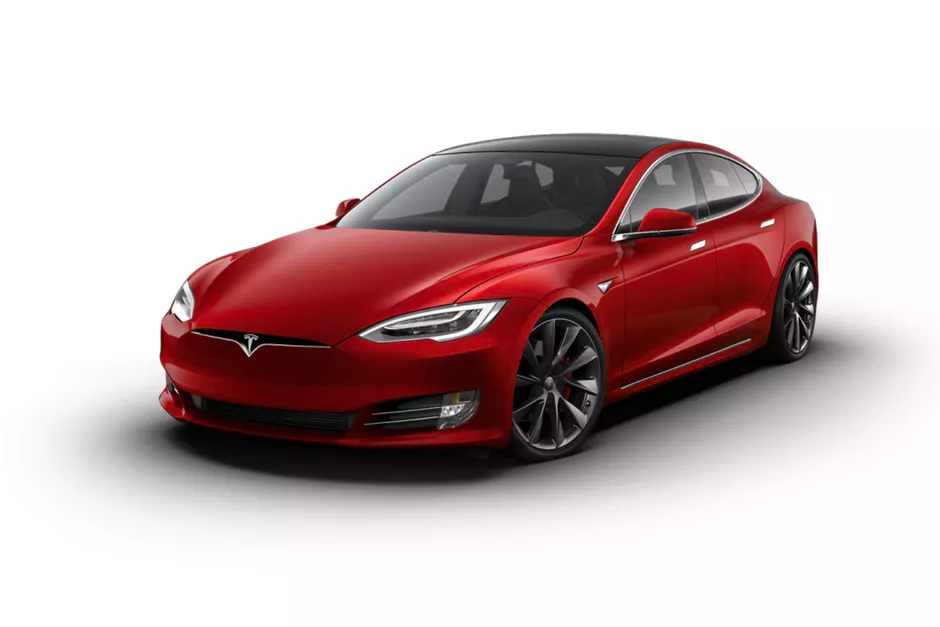

Tesla's pricier Model S. Image credit: Tesla
Tesla is reportedly under criminal investigation in the United States over its alleged claims that Tesla electric vehicles (EVs) can drive themselves.
Reuters, citing three people familiar with the matter at its source, reported that the US Department of Justice launched the previously undisclosed probe back in 2021.
It comes after Tesla EVs have been involved in a series of crashes where its automated driver assistance systems were in use, which included fatal accidents.
Tesla it should be remembered its already facing regulatory investigations over the matter in the US.
The National Highway Traffic Safety Administration (NHTSA) launched a formal investigation of Tesla’s Autopilot, after a series of high profile fatal crashes, back in August 2021.
Then in June this year, the NHTSA announced it was upgrading its preliminary investigation of the Autopilot driving assistance system, to an “engineering analysis”, which is the step taken before the agency determines a recal.
It should be noted that the NHTSA’s investigation only covers 2014-2022 Tesla Y, X, S and 3 vehicles, of which it estimates 830,000 are affected.
A regulatory investigation had been on the cards for a while now.
In November 2020, the NHTSA began a public consultation on ways to improve the safety of ‘self-driving’ cars.
Then in June 2021, the NHTSA ordered all car makers equipping their vehicles with automated driving systems, to begin reporting crashes so the US regulator could “collect information necessary for the agency to play its role in keeping Americans safe on the roadways.”
Two months later it launched its official probe into Tesla’s Autopilot system.
Now, according to Reuters, the DoJ investigation potentially represents a more serious level of scrutiny because of the possibility of criminal charges against the company or individual executives, the people familiar with the inquiry said.
As part of the latest probe, Justice Department prosecutors in Washington and San Francisco are examining whether Tesla misled consumers, investors and regulators by making unsupported claims about its driver assistance technology’s capabilities, the sources told Reuters.
Officials conducting their inquiry could ultimately pursue criminal charges, seek civil sanctions or close the probe without taking any action, they said.
Reuters said that the DoJ’s Autopilot probe is far from recommending any action partly because it is competing with two other DOJ investigations involving Tesla, one of the sources said.
Investigators still have much work to do and no decision on charges is imminent, this source said.
The Justice Department may also face challenges in building its case, said the sources, because of Tesla’s warnings about over-reliance on Autopilot.
Last week Elon Musk confirmed that the company’s advanced driver assistant software (‘Full Self-Driving’ or FSD) would not satisfy regulatory authorities – at least for this year.
Last month Tesla was hit by a lawsuit, which alleged the EV maker misled the public by falsely advertising its Autopilot and Full Self-Driving features (FSD).
That complaint accused Tesla and Musk of having since 2016 deceptively advertised the technology as fully functioning or “just around the corner”, despite knowing that the technology did not work or was nonexistent, and made vehicles unsafe.
It comes Tesla was ordered in July by a court in Germany to refund a customer over problems with the Autopilot system.
The court upheld the woman’s complaint that her car’s Autopilot was defective after a technical report showed the vehicle did not reliably recognise obstacles and would at times activate the brakes unnecessarily.
During the last five years, Tesla EVs have been at the centre of a number of incidents surrounding the use of automated driving systems, including multiple accidents and indeed fatalities.
But it is Tesla’s crashes into emergency vehicles that is especially concerning the US authorities.
In December 2019 for example, a driver was charged after he placed his Tesla Model 3 on autopilot so he could check on his dog in the back seat.
Unfortunately, the Model 3 (whilst in its autonomous driving mode) failed to avoid crashing into a stationary police car of the Connecticut State Police, which had its blue flashing lights on, as it attended to a broken down car.
In September 2021, five police officers in Texas sued Tesla after they, and a police dog, were ‘badly injured’ after an unnamed driver crashed his Tesla Model X into the back of two parked police cruisers at 70mph (112kph), after they had stopped to investigate a fourth vehicle for suspected narcotics offences.
The driver was drunk and had used his Tesla to drive him home, when it crashed and wrecked the police cars, and left the police officers with “severe injuries and permanent disabilities.”
An additional Tesla accident resulted in the first-ever US case of an individual being charged with vehicular manslaughter in January 2022, when their Model S went through an intersection with Autopilot engaged, striking a Honda Civic and killing two people.
Staffing decisions must left up to Cabinet secretaries says Trump, amid backlash to slash and…
Shares in HPE plummet after FY25 outlook disappoints Wall Street, as it confirmed 5 percent…
Cryptocurrencies decline after Trump signed executive order to establish Strategic Bitcoin Reserve and US digital…
Discover how empowering women in tech leadership drives innovation, fosters diversity, and creates lasting success…
Create inclusive tech workplaces by championing women, supporting mentorship, and valuing diversity. Empower future leaders…
Ying Liu, Head of AI at TG0, shares insights on gender equality, mentorship, and building…